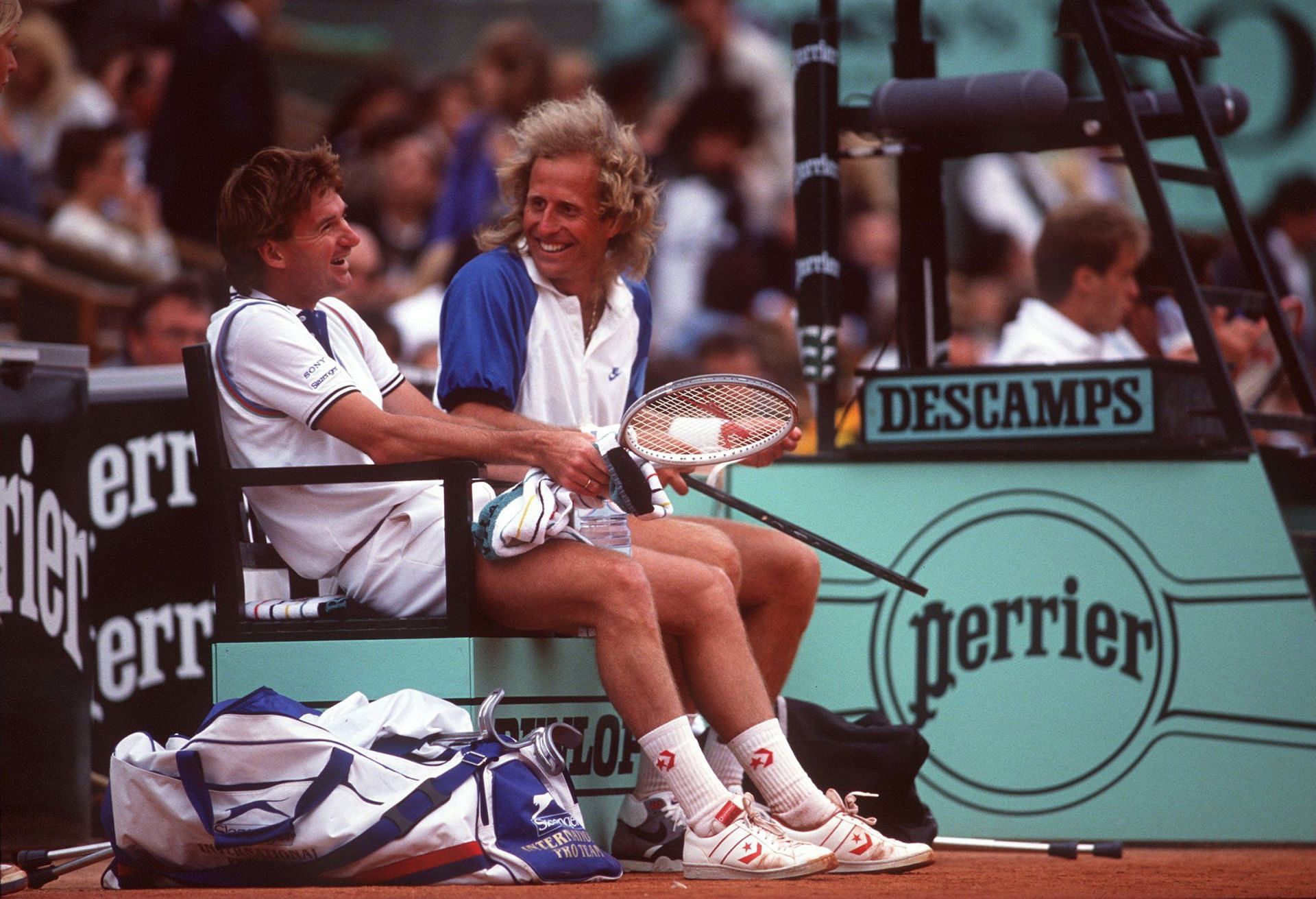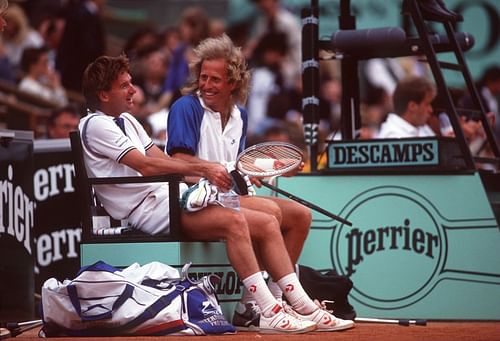
"Nobody beats Vitas Gerulaitis 17 times in a row" - Vitas Gerulaitis after ending losing streak to Jimmy Connors on this day in 1980

On 12 January 1980, Vitas Gerulaitis delivered what is now one of the most famous lines in tennis history. After downing Jimmy Connors in the semifinals of the Masters year-end championship, the American said: "And let that be a lesson to you all. Nobody beats Vitas Gerulaitis 17 times in a row!"
Prior to this, he had in fact lost to his compatriot 16 straight times. The iconic line is often brought up before matches when a player has never beaten their upcoming opponent, such as before Rafael Nadal improved his record against Richard Gasquet to 17-0 at last year's French Open.
Context
Gerulaitis, who was born in New York to Lithuanian parents in 1954, reached a career-high ranking of World No. 3 in 1978. He won 26 singles titles, including one of two Australian Open events held in 1977, the Italian Open (twice), and the 1978 WCT Finals.
The American retired in 1986, and died at the age of 40 in 1994 from carbon monoxide poisoning caused by an improperly installed pool heater.

Connors, who was born in Belleville, Illinois in 1952, spent 268 weeks as World No. 1 during his career - the fifth most since the ATP rankings were introduced in 1973. He won a record 109 ATP singles titles, including eight Majors, before retiring in 1996.
The match took place at the 1979 Masters - the season-ending event (now the ATP Finals) featuring the top eight players from the 1979 Grand Prix Tour. The tournament, which was played at the beginning of 1980, was held at Madison Square Garden, New York City, and played indoors on carpet courts.
Heading into the contest, Connors had won 16 consecutive matches between the pair dating back to 1974, after his rival won their first meeting in 1972.
The match
Gerulaitis, then ranked World No. 4, topped Group A to advance to the semifinals of the 1979 Masters after winning two of the three round robin matches, including a thriller against defending champion John McEnroe. Second-ranked Connors met him after finishing second in Group B, having also won two of his three ties.
The contest looked to be going the same way as the previous 16 between the pair when Connors went up a break in the opening set. Serving at 3-5, Gerulaitis crucially saved two set points - the second of which Connors sportingly conceded.
After an ace was called out, Connors softly returned the second serve and walked to the deuce side to allow his opponent an uncontested put away. The older American had felt the first serve was in.
The 1979 US Open runner-up survived, broke back and broke again to take the first set 7-5 when Connors narrowly missed a backhand passing shot. Gerulaitis then broke twice en route to claiming the second set 6-2 - sealing the win after a fine backhand down the line gave Connors no chance of making a volley.
Having ended his eight-year wait for victory over his rival, the World No. 4 produced his quote that will never be forgotten in a post-match press conference. He also won the following three encounters between the pair, with the overall head-to-head finishing 18-5 in favor of Connors.
Vitas Gerulaitis did, however, lose to someone 17 times in a row
Gerulaitis' triumph against Connors saw him reach the final of the 1979 Masters - where he was crushed 6-2, 6-2 by World No. 1 Bjorn Borg. This was his 13th straight defeat to the Swedish great - who was the greatest player of the era.
The year after the American delivered his famous line, he did remarkably lose a 17th match in a row to an opponent. In the fourth round of the 1981 Wimbledon Championships, Borg defeated him for the 17th consecutive time, after winning their first clash in Iran in 1974.
This was the final contest between the duo, and Borg never lost to his friend and rival, according to the ATP.